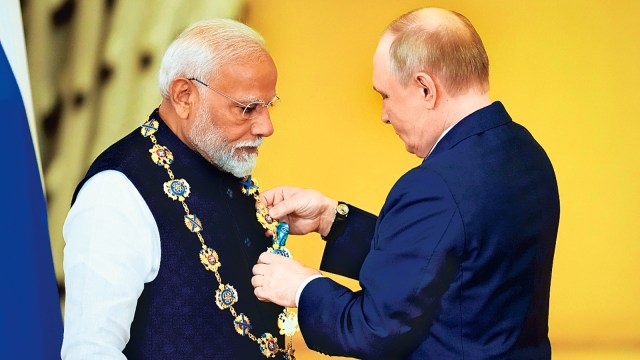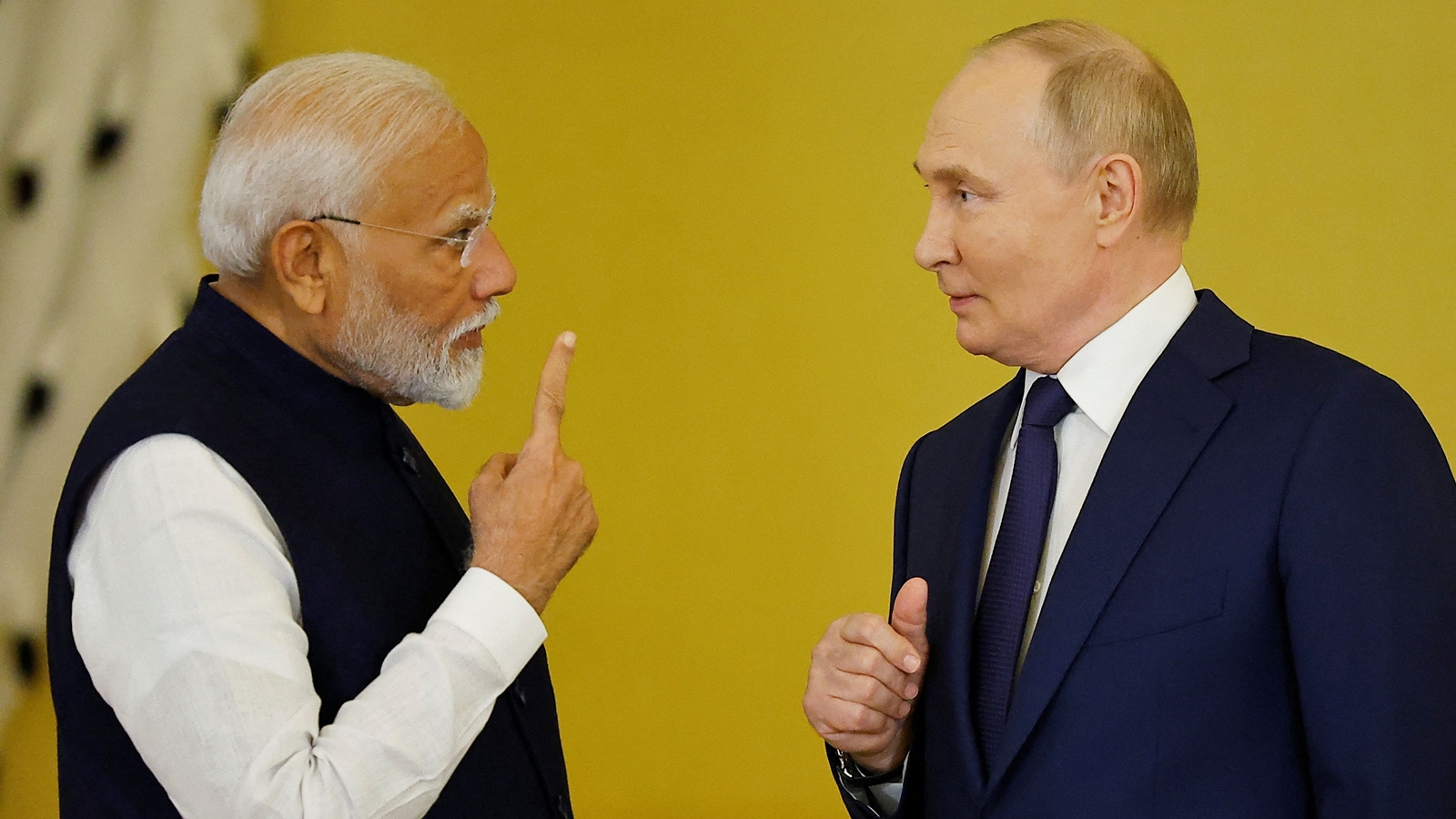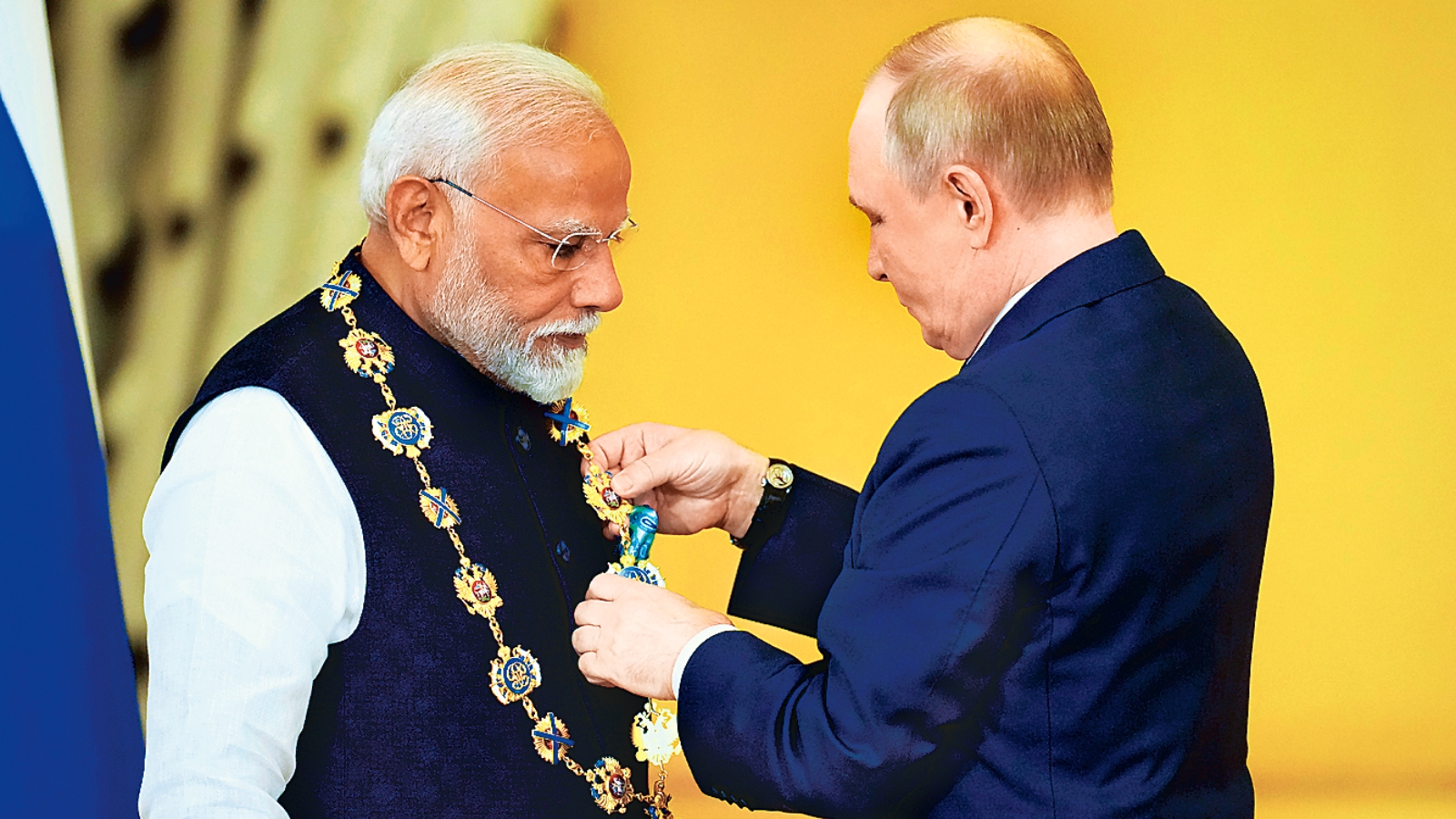
Prime Minister Narendra Modi’s visit to Moscow marks a significant shift from the post-Cold War tradition of the first prime ministerial visit being to a neighbouring country. This change is evident on multiple fronts, especially as India has led on climate issues over the past decade. The India-Russia joint statement, tepid on progressive climate solutions, emphasised increasing coal supply and exploring Arctic energy opportunities — steps counter to global climate goals and India’s energy transition ambitions. While offering platitudes on the Paris Agreement and climate finance, the statement seemed counterintuitive to India’s stance of reducing coal dependence when it said it will “explore the possibility for further increasing supply of coking coal to India, and the opportunities of exporting anthracite coal from Russia to India.”
Russia’s India-China balancing act
Prime Minister Modi’s decision to travel to Russia, a steadfast ally for over seven decades, underscores the significance of its ties, particularly amid a shifting global order. The multifaceted nature of these ties is apparent in the joint commitment to advance commerce, security, agriculture, technology, and innovation while strengthening defence, energy, and geopolitical relationships. Moscow continues to provide arms and heavily discounted oil to India, even as the latter has shifted in recent years towards strengthening strategic ties with the United States to counter China, especially after the 2020 border conflicts.

However, for Russia, China remains the most crucial partner. In May, Putin and Chinese President Xi Jinping reinforced their “no limits” strategic partnership, with Xi promising to assist Moscow economically, especially in circumventing US-led sanctions. In contrast, the joint statement with India is still grappling to “unlock the full potential of the special and privileged strategic partnership.”
Changes in the Arctic region affect India
The statement also signalled a “readiness to intensify trade and investment cooperation in the Arctic”, which could profoundly impact India’s climate and economic stability. Studies have shown that changes in the Arctic can destabilise the Indian summer monsoon, leading to extreme weather events that threaten food security in India. The loss of Arctic sea-ice affects the monsoon through “teleconnections”, correlating with extreme rainfall events during the monsoon. Melting ice increases solar radiation absorption in the Arctic Ocean, raising water temperatures. In winter, this warmer water alters circulation patterns, weakening westerlies and contributing to extreme monsoon rains in the Himalayan foothills.
For India, these teleconnections translate to increased monsoon instability. The monsoons, supplying over 70 per cent of India’s annual precipitation, directly impact agriculture — which employs over half the population and contributes a fifth of the GDP. Protecting Arctic sea-ice, therefore, is crucial for preserving monsoon stability, reducing risks to India’s long-term interests, and supporting its economic ambitions.
China’s Arctic project — and its effect on India
On the other hand, Russia, with its extensive Arctic territory, views the region as vital for its economic and strategic interests, especially in energy and mining. During the summit, a senior Russian government spokesperson from the Murmansk Region (Arctic) urged India to take the Arctic as a serious project and tap into its economic potential. He noted that while China is rapidly building infrastructure in the Arctic, India has been slower and should focus on this region due to its vast oil and gas reserves. India’s interest up till now has been only scientific research.
China’s growing influence in the Arctic, particularly through investments and access to the Northern Sea Route, carries significant strategic implications for India. As seen with its aggressive lending in Africa which has had disastrous consequences, Russia’s financial straits have led to its expanded alliance with China after being cornered due to its war in Ukraine. If China becomes Russia’s only option, it will recreate an Africa-like dependency. In such a scenario, India’s voice becomes essential for balancing of power.
India’s stake in the Arctic
India must assert its stance on the Arctic more firmly, leveraging its scientific research and strategic interests to advocate for the protection of this vital region. This approach will help preserve the region and ensure India’s long-term climate and economic stability. Given these stakes, India needs to accelerate its efforts to quantify the impact of Arctic changes on its climate and economy. Increased investment in scientific research and diplomatic initiatives to highlight the importance of the Arctic is crucial. India should leverage its position in international forums to advocate for the protection of the Arctic and promote sustainable development.
This opens space for India, an Observer to the Arctic Council, to not only have a seat at the table but also to play a prominent role in Arctic governance. India’s historical ties to the Arctic, coupled with its growing economic and geopolitical clout, provide a strong foundation for such efforts. India’s balanced and principled approach can counter China’s ambitions, ensuring that the Arctic remains a region of peace and cooperation.
As India navigates this complex landscape, it must stay committed to sustainable development and climate protection. Leveraging diplomacy and science-based climate solutions, per its Arctic Policy, India can shape the future of the Arctic, ensuring its protection for humanity’s benefit. India must articulate a clear stance on Arctic exploitation, advocating fast climate action while balancing strategic partnerships between the US, Russia, and China. Collaborating with the US on climate and scientific research, along with its historical ties with Russia, will help India find the balance and climate stewardship the world needs.
The writer is the director of India programme at the Institute for Governance & Sustainable Development (IGSD)



